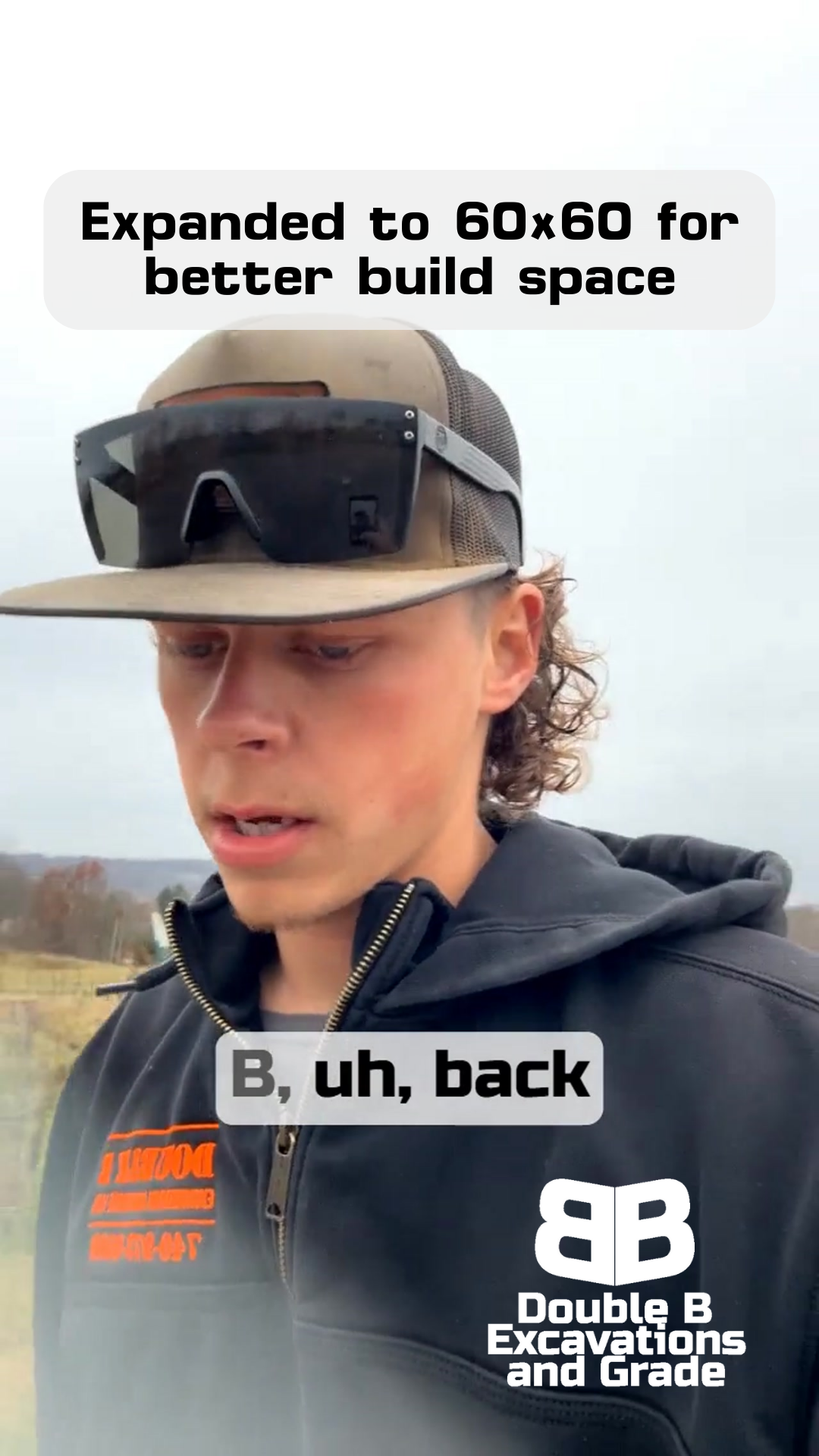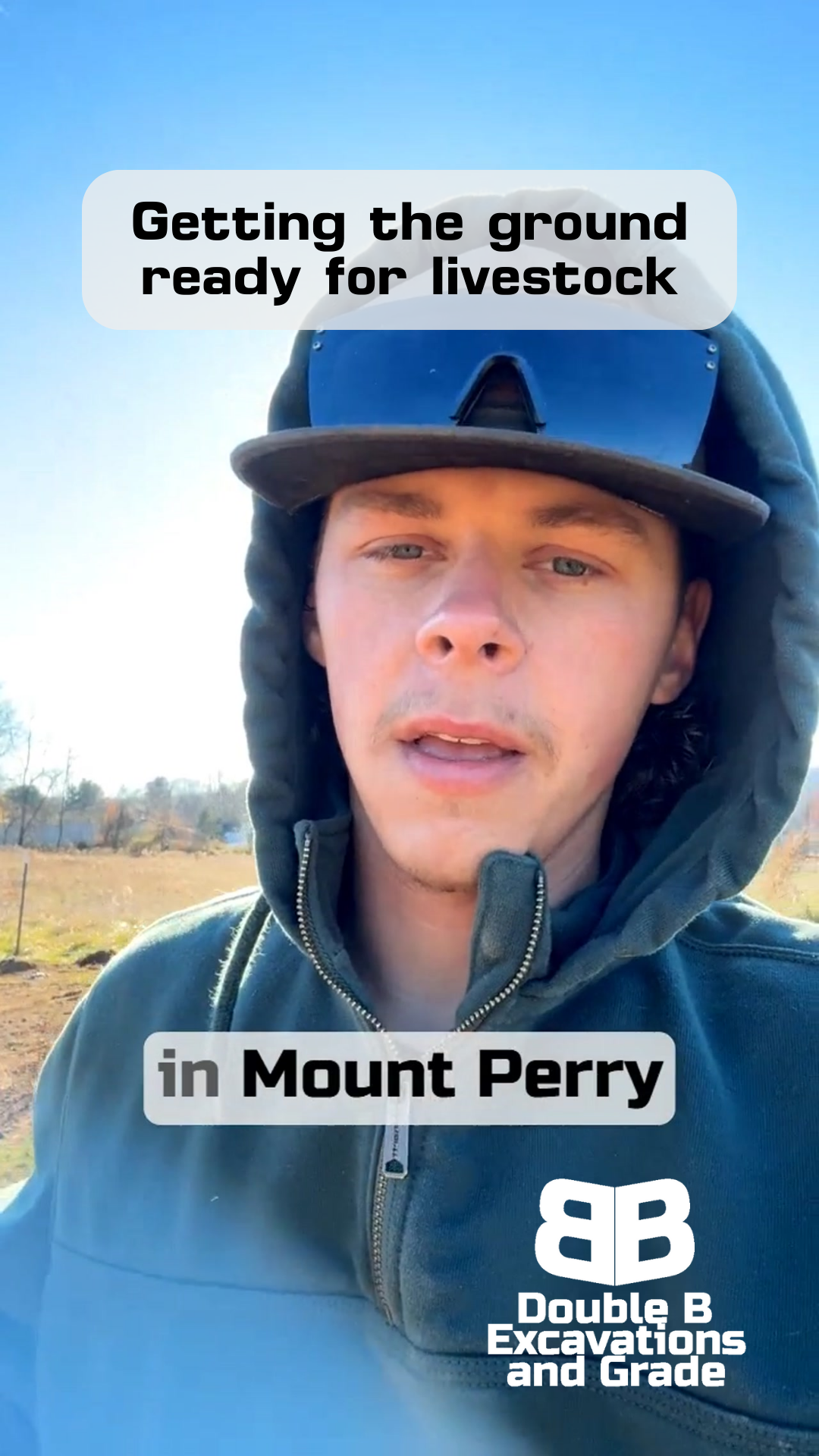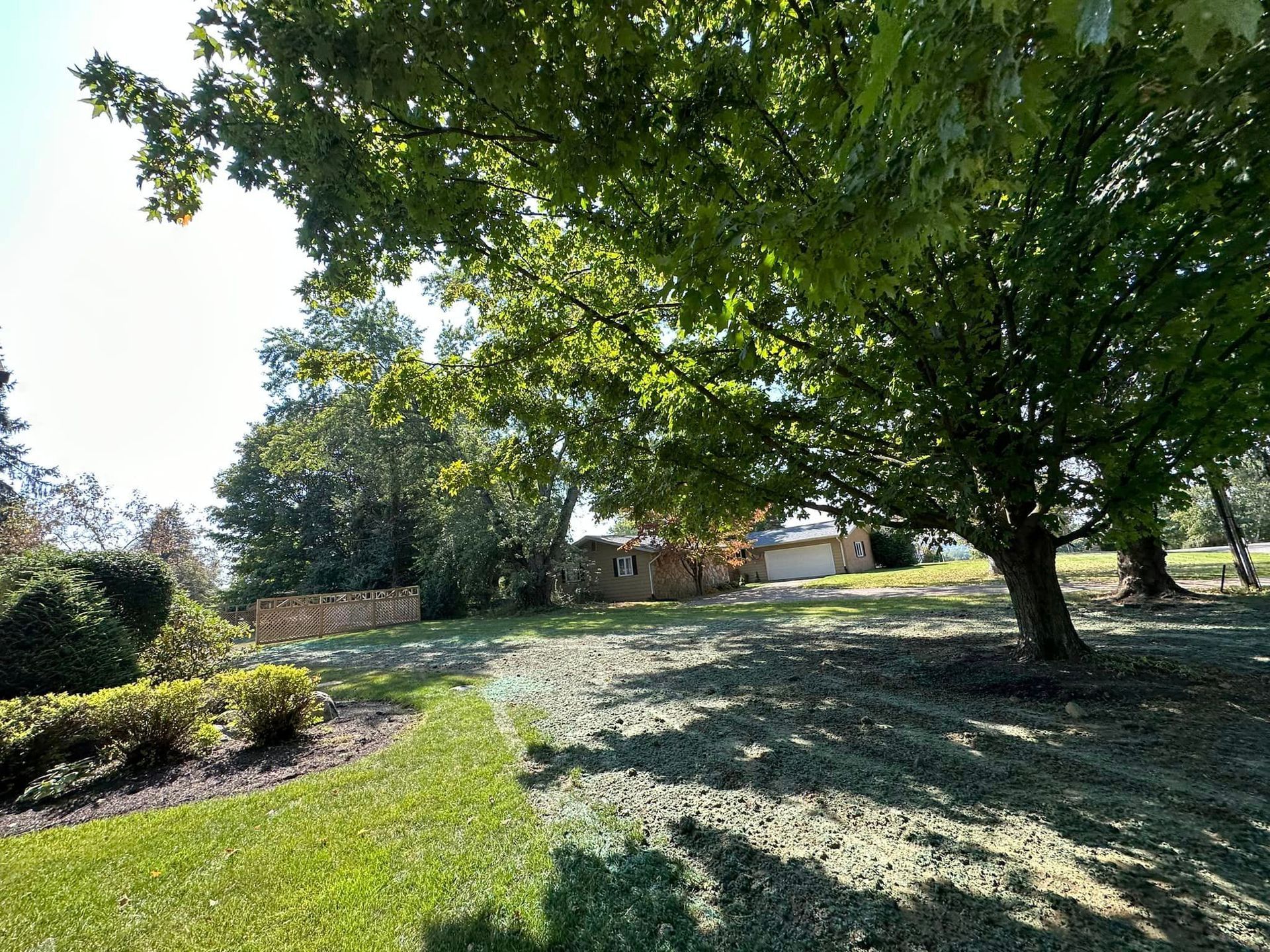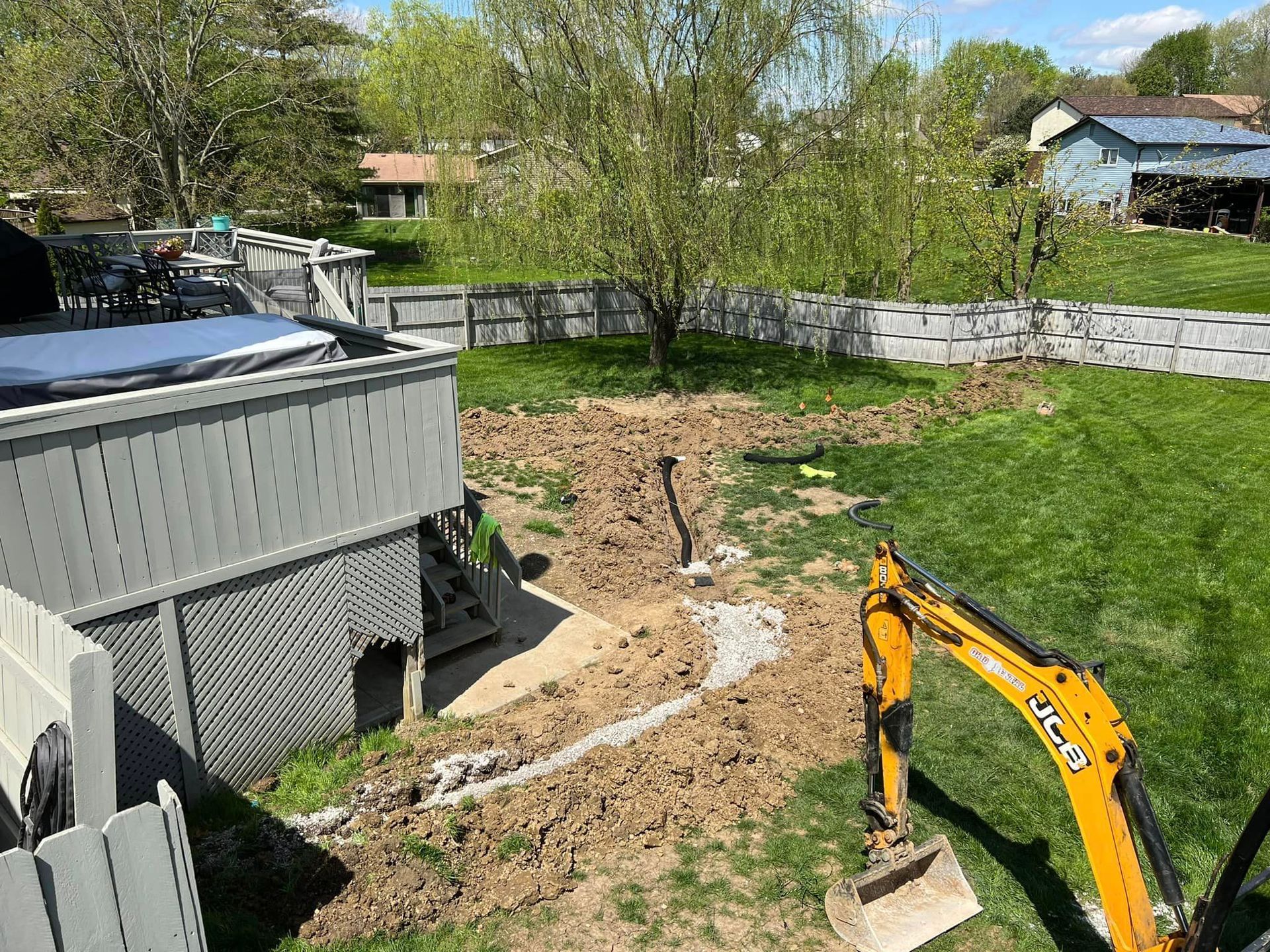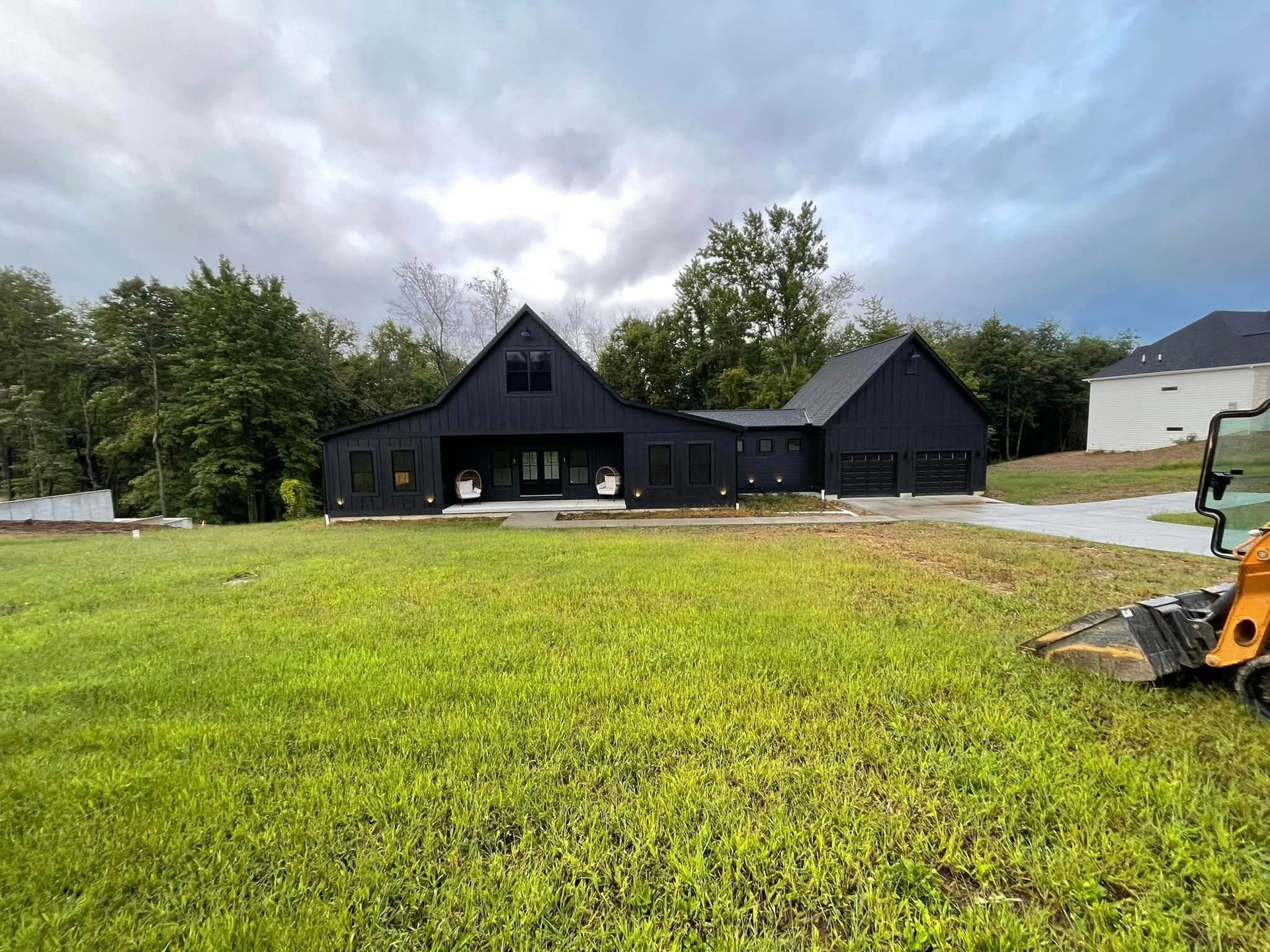Construction Driveway Compaction: The Difference Rolling Makes
Double B Excavations & Grade LLC
More Than Just Laying Stone
WHY PROPER COMPACTION CHANGES EVERYTHING
When it comes to construction driveways, there's a big difference between doing it and doing it right.
Just finished up a project in Delaware/Westerville that perfectly shows why.
Sure, you could dump some stone and call it a day - plenty of contractors do.
But we've learned over the years that taking that extra step with proper compaction makes all the difference in the world.
Here's something most people don't realize: stone driveways will eventually pack down on their own, but "eventually" isn't good enough when you're dealing with heavy construction traffic.
That's why we're so passionate about doing it right from day one.
Welcome to Double B!
Project Overview
Let's talk about what we just wrapped up in Delaware/Westerville. This wasn't a small job - we're talking about 230 tons of stone total. That breaks down to 100 tons of #2s for the foundation layer, topped with 130 tons of 304s. These aren't random numbers - there's a science to it.
What makes this project stand out is that the budget allowed us to do everything by the book. That means proper stone selection, careful layering, and most importantly, thorough compaction with our rollers. Some might see this as overkill for a construction driveway, but we know better. Every loaded concrete truck, every piece of heavy equipment, and every delivery vehicle that'll use this driveway proves why these details matter.
The Stone Selection Process
There's a reason we're so specific about our stone choices. Starting with those #2s - these bigger stones create our foundation. Think of them like the basement of a house. You need something solid to build on, and these larger stones lock together to create exactly that.
But here's where it gets interesting - those 130 tons of 304s we put on top aren't just there to look pretty. We chose this amount specifically because 304s are perfect for what comes next. Down the road, when it's time to add 57s (that's another type of stone), these 304s are going to provide the ideal surface for compaction. It's like we're thinking three steps ahead, because that's what it takes to build something that lasts.
The Rolling Difference
Let me tell you what happens when someone skips proper compaction. You end up with what we call "the crown effect" - a raised middle section with divots along the sides. Sure, it might look okay at first, but give it a few weeks of heavy traffic, and you'll see exactly what I'm talking about.
That's exactly why we're so adamant about rolling our driveways. When you use the right equipment to compact these layers properly, you're preventing those problems before they start. Yes, I hear it all the time - "The stone will pack down naturally." And they're right, it will. But there's a big difference between letting stone settle naturally over months and getting it properly compacted from day one.
Think about it this way: when you've got concrete trucks weighing upwards of 80,000 pounds using your driveway, do you really want to wait for natural settling? That's why we roll everything when we can. It's not just about making the surface look nice - it's about creating a stable, reliable access point that's ready for heavy use right away.
The Compaction Process
When we talk about rolling and compacting a driveway, we're not just making a few passes and calling it good. There's a whole process to it. First, we make sure each layer is properly spread - you can't fix poor stone distribution with rolling. Then we work systematically across the surface, making sure we get consistent compaction throughout.
The equipment we use matters too. We could get by with lighter equipment, but we've learned that doing it right the first time saves everyone headaches later. That's why when the budget allows for it, like on this Delaware/Westerville project, we bring in the proper rollers to get the job done right.
Cost vs. Value
Let's talk about the elephant in the room - cost. Yes, proper compaction adds to the budget. Some builders try to save money by skipping this step. But here's what we've learned over years of doing this work: trying to save money on your construction driveway usually ends up costing more in the long run.
Think about all the equipment and materials that need to get in and out of your construction site. One stuck concrete truck or one delayed delivery because of poor access can cost more than doing the driveway right in the first place. That's not even counting the time and money spent on constant maintenance and regrading when driveways aren't properly compacted from the start.
Closing
There's a reason we do things this way. Every rolled driveway, every carefully selected stone, every extra step we take - it's all about building something that lasts. When you're planning your construction project, remember that your driveway isn't just an access point - it's the foundation that makes everything else possible.
Looking Forward
If you're planning a construction project in Delaware, Westerville, or anywhere in central Ohio, don't overlook the importance of proper driveway construction and compaction. It might seem like a small detail, but in our experience, it's these small details that make the biggest difference in how smoothly your project runs.
Need help figuring out the right approach for your construction site? We're always happy to walk properties and discuss options. Because at the end of the day, doing it right is always cheaper than doing it twice.
